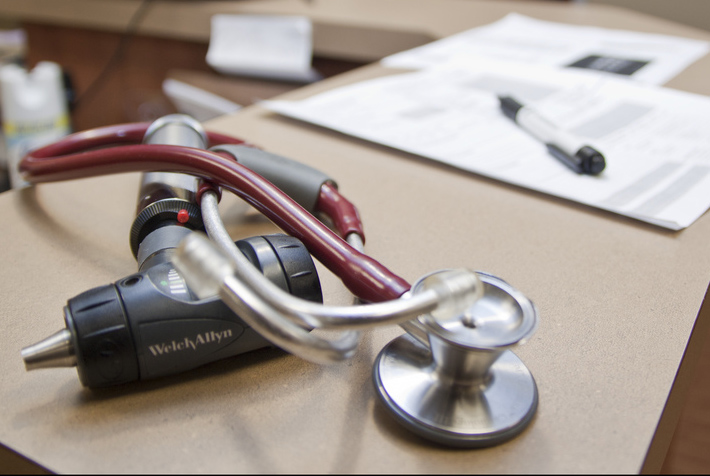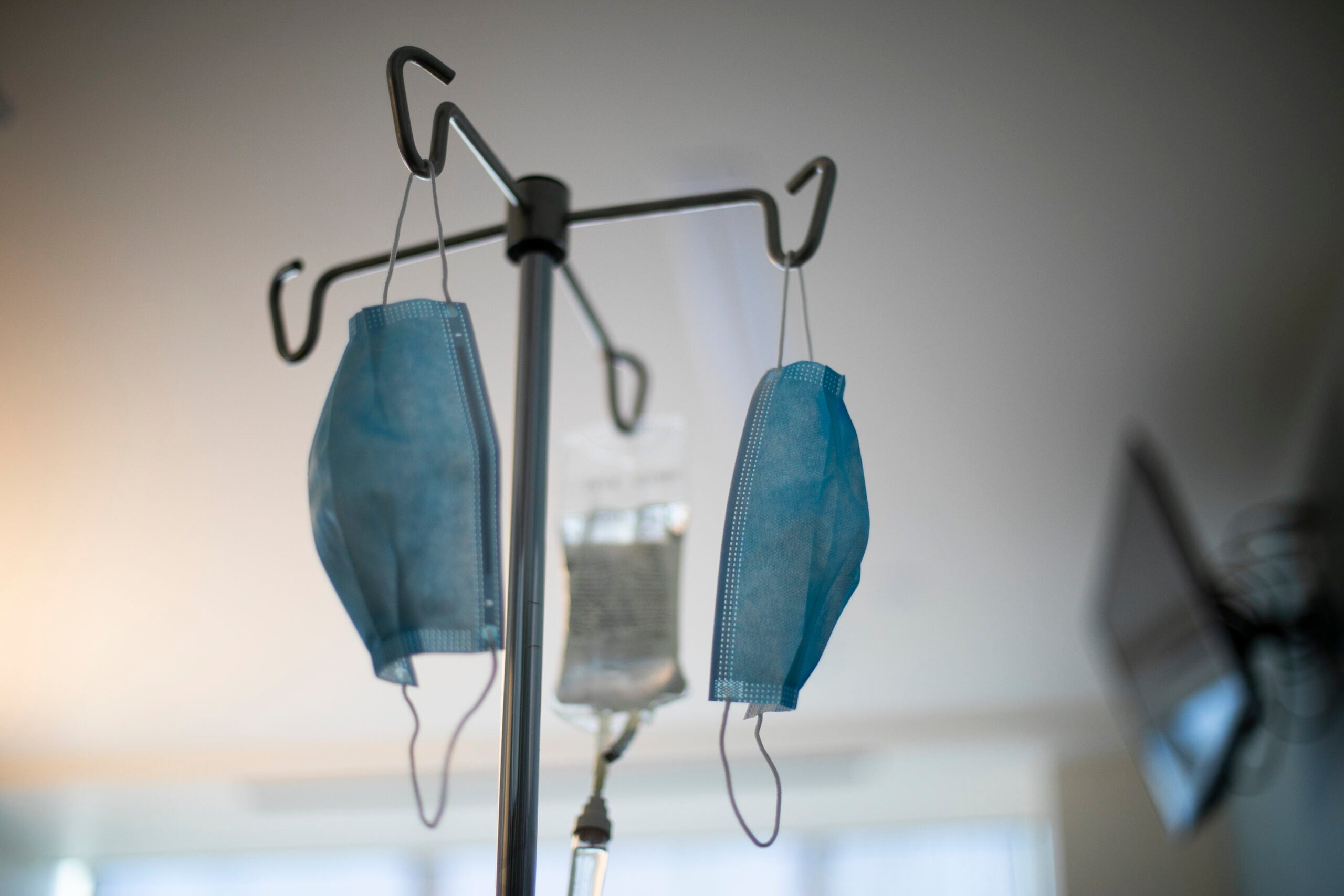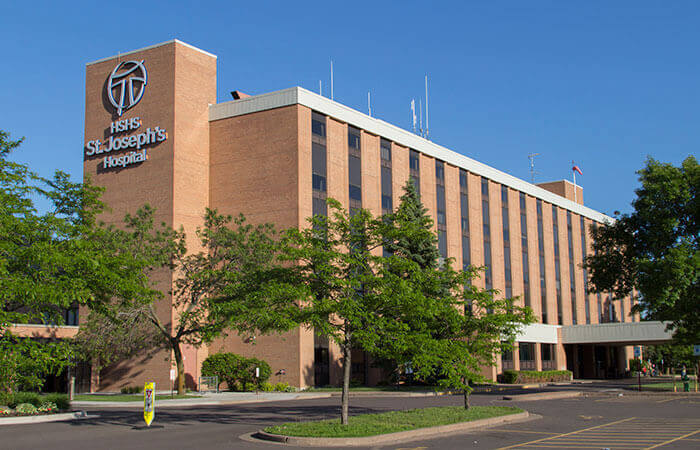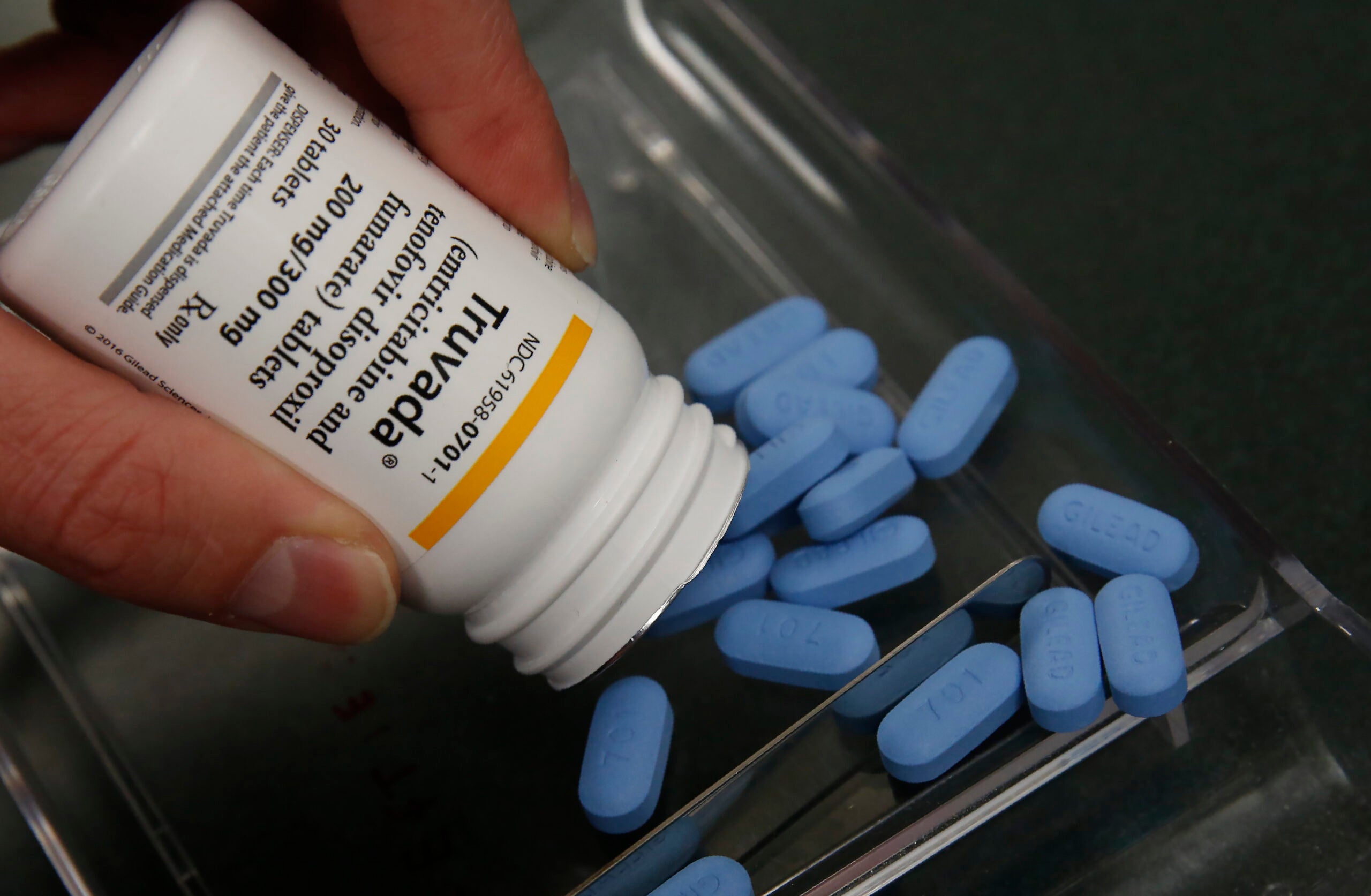A new health clinic in southeast Wisconsin aims to provide some of the most comprehensive LGBTQ focused medical care in the region, but some health advocates say the community remains largely underserved.
Froedtert and the Medical College of Wisconsin opened the Inclusion Health Clinic in Wauwatosa Monday. Services include primary, gender-affirming and psychiatric care.
Dr. Andrew Petroll, director of the outpatient clinic, said staff also aim to train medical students on how to treat LGBTQ patients.
Stay informed on the latest news
Sign up for WPR’s email newsletter.
“I think there are definitely shifts in attitudes around being affirming towards those individuals, but acquiring the kind of skills that are kind of necessary to care for those kinds of patients isn’t necessarily well taught,” he said.
Ronnie Grace, the lead HIV and STI prevention coordinator at Diverse and Resilient, a Milwaukee-based LGBTQ advocacy group, said he has had to educate his physician in the past.
“Often times we’ve found the primary care providers don’t have a great deal of information about some of the needs of the people from the community,” Grace said. “So we find ourselves educating those physicians about certain things and questions, and things that we hear other people from the community.”
Grace said an example is doctors failing to ask men who have sex with men whether they are the receptive or insertive partner during sex — the receptive partner is more vulnerable to certain viruses.
The need for anal pap smears are also often overlooked by physicians, Grace said.
Finding a provider that has the training and is comfortable treating the LGBTQ population is more difficult in rural areas.
“The larger the city, the more providers there are available, but for the rest of the community, often times, there’s travel involved,” said Grace. “And one of the things that has been done that one of the agencies is doing is telemedicine.”
Still, even if an individual lives near an LGBTQ-focused clinic, Grace said people who are in most need of care may not hear about services.
Grace would like to see places like the new Inclusion Health Clinic make a greater effort to reach out to communities of color.
Ericka Sinclair, CEO of the Greater Milwaukee Center for Health and Wellness, said the stigma surrounding vulnerable populations like the LGBTQ community also plays a role for in the lack of medical infrastructure available.
“The value systems that are developed within these particular smaller, rural areas does not necessarily allow for room to feel comfortable enough to go to a provider and think that a provider actually knows, a) what they’re doing and, b) that they really care about the patient regardless of how they present themselves,” Sinclair said.
LGBTQ patients often call places like the Greater Milwaukee Center for Health and Wellness looking for physician recommendations, according to Sinclair. She said center employees often act as a virtual database, calling a network of people in hopes of finding a doctor that can meet the needs of patients who live hours away from the city.
Sinclair, Grace and Petroll said they hoped one day all medical staff would be trained and comfortable enough to address LGBTQ health needs and that there won’t be a need for LGBTQ focused clinics.
Still, the Inclusion Health Clinic in Wauwatosa already has appointments scheduled with patients who live as much as four hours away.
Wisconsin Public Radio, © Copyright 2024, Board of Regents of the University of Wisconsin System and Wisconsin Educational Communications Board.




